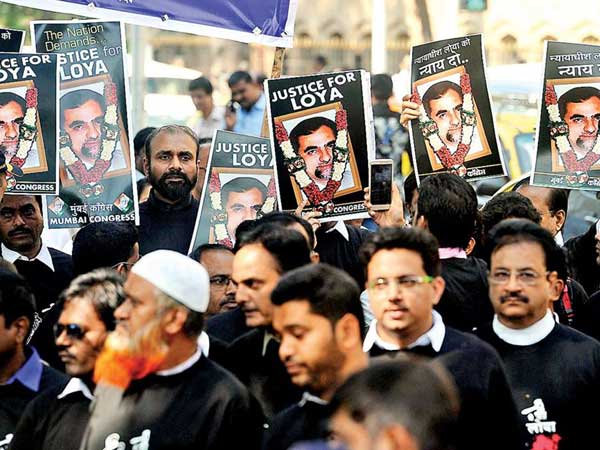
The Supreme Court on Thursday rejected the plea for an independent inquiry into the circumstances of the death of Brijgopal Harikishan Loya, a judicial officer in Maharashtra on December 1, 2014 (who heard the Sohrabuddin fake encounter case involving BJP president Amit Shah) holding that there are enough materials to suggest that he died of natural causes.
A three-judge bench of Chief Justice Dipak Misra and Justices AM Khanwilkar and DY Chandrachud said, “We have come to the conclusion that there is absolutely no merit in the writ petitions. There is no reason for the court to doubt the clear and consistent statements of the four judicial officers (who were with him at the time of death). The documentary material on the record indicates that the death of Judge Loya was due to natural causes. There is no ground for the court to hold that there was a reasonable suspicion about the cause or circumstances of death which would merit a further inquiry.”
On the plea that the judicial officers have to be cross-examined, as there are inherent contradictions in their statements, the bench said when there is very little proof that they are conspirators in a murder, the court must stand by the statements of the judicial officers. “The judges of the district judiciary are vulnerable to wanton attacks on their independence. This court would be failing in its duty if it were not to stand by them,” it said.
Dismissing the petitions filed by Tehseen Poonawalla and others, the Bench pointed out that the Maharashtra police conducted a discreet enquiry after an article, appeared in a magazine in November 2017. The conclusion of the discreet inquiry is that Judge Loya suffered a heart attack in the presence of his colleagues belonging to the judicial fraternity. They had made all possible efforts to provide medical assistance to save him. Judge Loya died as a result of natural causes.
Referring to senior counsel Dushyant Dave’s argument to the extent of insinuating that one individual (BJP president Amit Shah) is controlling the entire judiciary in Maharashtra and elsewhere, the bench said such allegations have the propensity of endangering the credibility of other institutions and undermining public faith in democracy and the rule of law. “This will happen when the agency of the court is utilised to settle extra-judicial scores. Business rivalries have to be resolved in a competitive market for goods and services.”
The court said, “Political rivalries have to be resolved in the great hall of democracy when the electorate votes its representatives in and out of office. Repeatedly, counsel for the petitioners and intervenors have attempted to inform the court that they have no personal agenda and that they have instituted these proceedings to protect judicial independence. But as the submissions have evolved, it has become clear that the petition is a veiled attempt to launch a frontal attack on the independence of the judiciary and to dilute the credibility of judicial institutions. Judicial review is a potent weapon to preserve the rule of law.”

